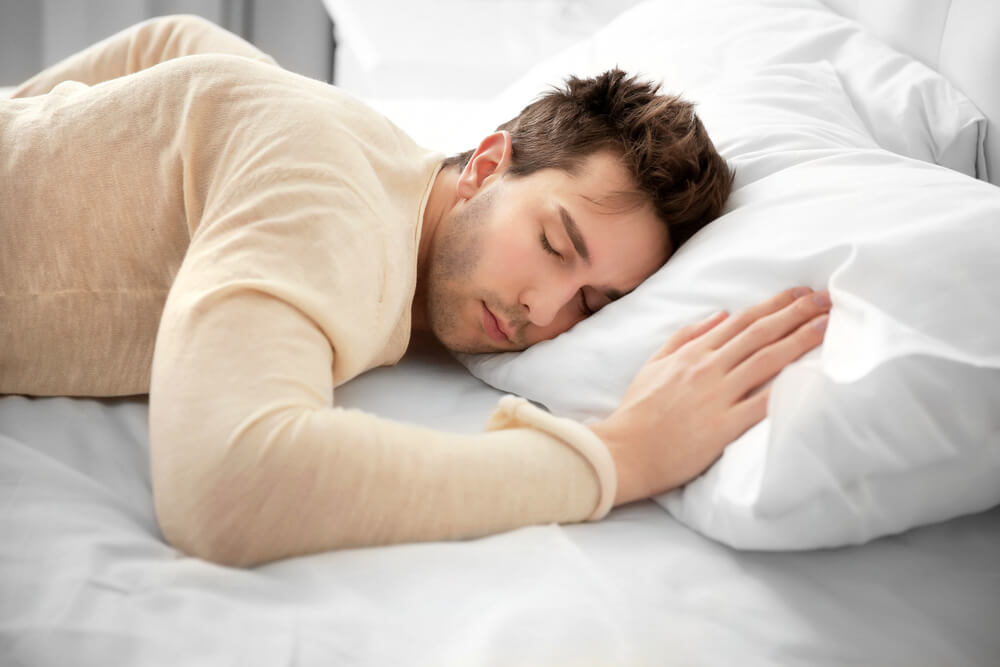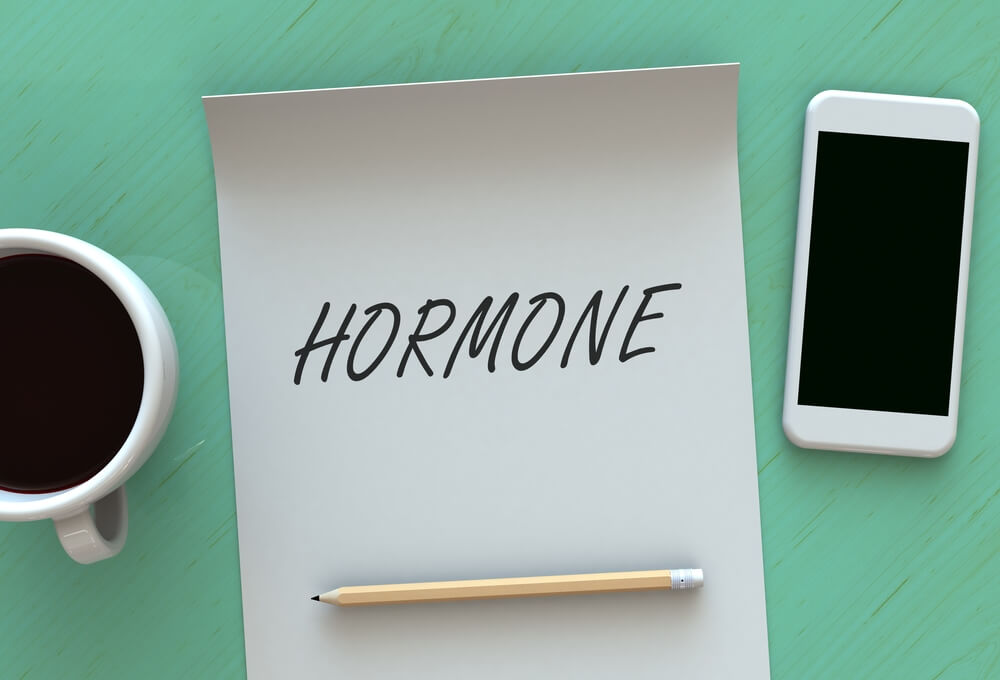
We all need it. We all neglect it. Think you can keep skipping sleep and build a great body? Think again! Does Sleep Affect Muscle Growth? Yes…
Even though we spend more time sleeping than training and eating, it’s usually the lost piece to having all kinds of gains. It’s 11:43pm. If I can fall asleep within two minutes, I’ll get exactly 7 hours and 23 minutes if I only hit the six-minute snooze button once.
We’ve all been there trying to figure out how we can recharge our batteries with sleep. Wondering how we miraculously calculated a number quicker than a computer just to figure out the exact amount of sleep we can get. If something is worth using our math prowess on, it’s important. Even if you take over the counter sleeping vitamins like somnapure sleep aid, these sleeping rules still apply.
More often then not sleep is the forgotten section of the holy trifecta of training, nutrition and recovery. Sleep affects the body on a multitude of hormonal, metabolic and regeneration levels that can’t be made up for elsewhere. Just like not getting proper post-workout nutrition, not getting enough sleep grinds your gains to an abysmal halt.
We spend a third of our lives doing it, but how exactly is sleep getting us to that next level physique?
What kind of sleep will get us there the quickest and how much do we actually need?
What are the stages of sleep?
Do sleep problems matter?
Come find out and unlock the gains that have been hibernating.

This Is What Happens During Sleep
To understand how sleep helps you attain all kinds of gains, it’s important to understand the changes that occur in the body during it. Aside from the obvious resting of the eyes during the stages of sleep, the body’s metabolism shifts greatly.
First off, the body goes through sleep cycles, or stages of sleep, lasting about 90 minutes. These stages of sleep consist of four nonrapid eye movement stages (NREM) and one rapid eye movement (REM) or dreaming stage.
In the early stages of sleep, the NREM stages are longer. They shorten towards the last couple hours of sleep and vice versa for the REM stage. NREM are the stages of sleep where recovery and regeneration occur the most and the body is most relaxed. This is where all kinds of gains could be made. In the REM stages breathing accelerates slightly and energy expenditure rises slightly as we dream.
These Are The Body Changes
Overall, as one would expect, the body’s energy expenditures are lowest during the stages of sleep. This is why the basal metabolic rate, or how many calories your body burns at rest, is calculated during sleep. It’s also why resting heart rates are most accurate in the morning when the body hasn’t had to move or digest food. These actions raise your heart rate.
The reason for this is that sleep is influenced by the circadian rhythm, which naturally slows down during the night. This is invoked by the release of melatonin, a hormone that signals to the body that it’s nighttime.
These factors combine to relax the heart, reduce muscle activity, stimulate regeneration, regulate proper endocrine function and lower your body temperature. In order for sleep to occur as it’s supposed to it’s vital that enough is had and the quality remains high to not interrupt vital sleep cycles.

Does Sleep Affect Muscle Growth?
You may be thinking, what good is lying motionless when I could be working out or meal prepping. Well, neither of those things will carry nearly as much clout if sleep benefits get sacrificed.
Resistance training works by breaking down muscle and putting a stress on the body. Gains are made when the body adapts to the stress by rebuilding the muscles and connective tissue back stronger. If the stress placed upon the body is too high or if there is not adequate nutrition or recovery, the body will be over trained and gains squandered.
It’s during the latter stages of the NREM sleep that protein synthesis and muscle rebuilding occur. Having sleep problems that leads you to missing out on sleep means missing out on these phases of muscle building. Also, it’s not just the stages of sleep that influences protein synthesis. It’s also the hormonal shifts that occur throughout the night that we’ll discuss later.

Your Heart Is Vital
Your most important muscle, the heart, never stops working but does get relief during sleep. As we know heart rates drop significantly during sleep. Blood pressure also goes down during this time. Without the reduction in blood pressure and contractions, the heart can’t fully recover. Obviously, this is a huge health factor contributing to chronic diseases, also impacting gym performance.
All training raises the heart rate whether it’s a one-rep max or a grueling superset. The muscles rely on the heart to send valuable nutrients and oxygen to them during exercise creating the pump. To recover between sets and lift the most amount of weight, the heart needs to be in shape and rested. There’s a reason workout endurance drops after a lack of sleep.
This Is The Regulation Process
Naturally when the body is put under the physical stresses of exercising, inflammation goes up. Inflammation is a natural signal for the body to focus its attention towards repairing itself. But, with too much of it, the body can’t repair the muscles as well as it should.
Also, inflammation is commonly the cause for joint and soft tissue discomfort. These are the kind of aches and pains that inhibit you from training at full intensity or, even worse, the kind that warrant an extended deloading phase.
A study found that people who got less than six hours of sleep a night have more C-protein inflammatory markers. This is linked to an overstimulation of the sympathetic nervous system that’s recovered during sleep. Thus losing out on sleep not only increases inflammation, but it also doesn’t allow the body to decrease inflammation sufficiently.
Hormones run the body. It’s that simple. Any change in the body is brought on by the endocrine system releasing a hormone that elicits a reaction. Many hormones are re-regulated and released during sleep that optimizes the body’s ability to grow and feed muscle. Research has found that just one bad week of sleep problems messes up metabolic and endocrine function.

Growth Hormone Is An Anabolic Paradise
Aside from testosterone, few hormones play a role in hypertrophy like growth hormone. This hormone is mainly regulated during sleep, so skimping on sleep means skimping on growth hormone. That’s a bad idea if you want to up lean body mass.
Growth hormone primarily rises during the start of sleep. While this might lead us to believe losing a bit of shuteye won’t significantly impact growth hormone release, it’s not the case. Research has shown that more growth hormone is released when participants go to sleep at earlier bedtimes around 10pm.
Also, a study found that losing sleep for just one night negatively impacts growth hormone. The good news is the study found that only losing sleep for one night still allows for a quick rebound of growth hormone the next night. But, participants with sleep deprivation that lasted for one week did not experience the same instant rebound.
This shows that the longer we allow ourselves to not get enough sleep, the longer it takes to return to homeostasis.
What are gains without sleep?
Not nearly the same as with sleep. Even though a battle may be won in one night, the war of gains surely can’t be.
It’s About Maximizing Protein Synthesis And Burning Fat
The hormones that control hunger and the release of energy into the bloodstream also alter protein synthesis and fat burning. With sleep and proper nutrition, these hormones can be regulated in our favor to build muscle and stay lean.
Boosting post-workout glucose and insulin levels is a proven way to increase protein synthesis. For this effect to be maximized, insulin levels need to be sensitive. This is controlled through eating lower glycemic index foods and through adequate sleep.
During the final stages of sleep, glucose and insulin levels drop. This natural drop increases insulin sensitivity so when the high carb post-workout meal is consumed, insulin levels can skyrocket stimulating growth. With a lack of sleep, we lose this sensitivity and one of our most valuable tools in influencing protein synthesis. That’s not to mention the other health issues linked with chronically high insulin levels.
Appetite Control And Adipose Tissue Matter
The body never feels good after a lack of sleep. In fact, it feels stressed which brings up a dangerous hormone, cortisol. While a small rise in cortisol post-workout is good, at other times it kills gains. Cortisol slows the fat burning process, reduces protein synthesis and raises our appetite. All these effects are detrimental towards achieving a good body composition.
Leptin and ghrelin could be the key to weight loss and sleep. Leptin is produced from fat tissue and suppresses the appetite. Ghrelin is produced by the stomach and promotes the feeling of hunger during fasting. During sleep, they both rise but ghrelin levels fall towards the end of the night. So cutting sleep short will unnecessarily increase your appetite with higher ghrelin levels and decrease appetite suppression from lower leptin levels.
For hard gainers, this may sound like dream come true. Be wary.
Why?
It’s not as great as it sounds. Leptin plays a huge role in gaining muscle and staying lean. Decreasing it reduces insulin sensitivity leading to less protein synthesis.
Training Intensity Is Impacted
One effect of sleep deprivation we instantly feel is on the state of our body and mind. Our bodies don’t have the same sharpness and strength with less sleep.
It’s not just the physical feel that hurts us. It’s the mental side effects. Studies have found that a lack of sleep negatively impacts focus, attention and memory. These are pretty challenging things to fight through when looking to train with intensity.
These are also factors that usually lead to skipping a training session. Don’t let something that’s within your control like sleep drag down your training sessions.

Maximizing Sleep For Muscle Growth Is Key
It’s clear that a lack of sleep is a roadblock we can’t go around. We can do our best to make the most of our slumber. The faster we fall asleep, the deeper sleep we can reach and the more gains we can make. We can even track our sleep with accelerometers (like a Fit Bit) or phone apps to see how many sleep cycles we go through and how long it took us to fall us sleep (no more nighttime math). There are a few other ways to hit a deeper sleep in less time.
One way is to put out the candles. Melatonin regulates the body’s internal clock and is influenced by light of any kind. A study found that people exposed to bright light (like a tablet or computer) experienced an 85-minute delay in melatonin release. The best way to keep melatonin levels high and quickly fall asleep is to put down the screens and avoid bright light.
You should also try to mellow out.
How?
Caffeine is another huge factor in falling asleep. With a half-life of six hours, it takes quite some time for its full effects to wear off, even if we feel tired. When caffeine is present it binds to adenosine blocking it from binding to receptors that signal bedtime to the body. It also stimulates the release of adrenaline and like bright lights, it delays the release of melatonin.
Putting those two together a study showed that caffeine combined with bright lights delayed melatonin release by a whopping 105 minutes! Even though we all are influenced differently by caffeine, cutting out that afternoon cup of coffee will go a long way in naturally inducing sleep.
Practicing breathing through the diaphragm with slow deep belly filling breaths is a quick trick to pass out. This slows the heart rate down, distracts the mind and forces us to avoid the deadly screen. It should only take a minute or two before the mind dozes off and the anabolic hormones start kicking in.
Conclusion
What are gains like without sleep?
Not what they can or should be. Experts advise seven to eight hours or four to five sleep cycles per night. These recommendations are made for the average person. Gym junkies are not your average person. They train hard and have a much higher need for recovery than most. When training hard, eight hours is really a minimum.
A study even found that NCAA football players who slept 10 hours each night had huge gains in performance. Most of us fit somewhere in-between these two extremes needing around eight to nine hours of quality rest.
Make sure your training and diet are on point but never forget the importance of sleep. Every minute truly counts. Losing just eight minutes of sleep per night means losing about an hour a week. That’s an hour of gains lost for nothing. All kinds of gains are ahead if you get through enough stages of sleep each night on a consistent basis
By Raphael Konforti MS, CPT
Latest posts by Raphael Konforti (see all)
- The Best 4 Day Workout Split For Greater Gains - Feb 6, 2017
- The Best Lower Chest Workout For A Better Body - Aug 15, 2016
- How To Get Rid Of Shin Splints - Jul 7, 2016










Very interesting points here. I think it’s so important that people working out take care of their body in all aspects, not just while at the gym. Getting the right amount of sleep is part of that.
Jordan,
Yes 100% … sometimes gymjunkies overlook how important sleeping and resting is for muscle growth!
Thanks for stopping by…
Terry Asher
Sleep is critical. My wife just had a baby 7 weeks ago and I’m really sleep deprived. I haven’t been to the gym since because I don’t want to end up messing up my body.
But I’m going to get back into it soon.
Raza,
Thanks for stopping by… It’s crazy how many people overlook how important sleep is for muscle growth and staying in shape in general.
It’s smart your giving your body some time to rest and not pushing it. Grats on your new baby 🙂
Terry Asher
[…] http://gymjunkiesmain.wpengine.com/does-sleep-affect-muscle-growth/ […]
[…] secrete hormones. These hormones help to control our metabolism, appetite and glucose hormones. A lack of sleep also leads to a decrease in leptin levels. That’s the hormone that tells the brain that you are feeling satisfied or full. The problem here […]
[…] works by stimulating known pathways in the brain that boost production of Growth Hormone while you sleep. According to the medical literature, the benefits from a healthy level of growth hormone are many. […]
the total time you sleep in a week doesn’t matter as long as your CNS is doing good sleeping 7 hours and 52 minutes everyday will do nothing to your gains
I think the more accurate statement would be that “lack of sleep negatively affects muscle growth”. Sleeping more isn’t going to turn you into Arnold, but not sleeping enough will definitely help you remain a weak noodle!
[…] Does Sleep Affect Muscle Growth? […]
[…] Does Sleep Affect Muscle Growth? […]
[…] to its full potential. If you do not recover from the physical stress of the previous day due to a lack of sound, your workouts may not be very […]
[…] the standard of your eating regimen, getting in some good micronutrients, decreasing stress, and sleeping sufficient, you’ve gotten performed quite a bit. Naturally, you’ll have a lower in […]
[…] on improving the quality of your diet, getting in some good micronutrients, reducing stress, and sleeping enough, you have done a lot. Naturally, you will have a decrease in calories from these fat loss […]
[…] on improving the quality of your diet, getting in some good micronutrients, reducing stress, and sleeping enough, you have done a lot. Naturally, you will have a decrease in calories from these fat loss […]
[…] standard of your weight loss program, getting in some good micronutrients, decreasing stress, and sleeping sufficient, you’ve gotten completed lots. Naturally, you’ll have a lower in energy from […]